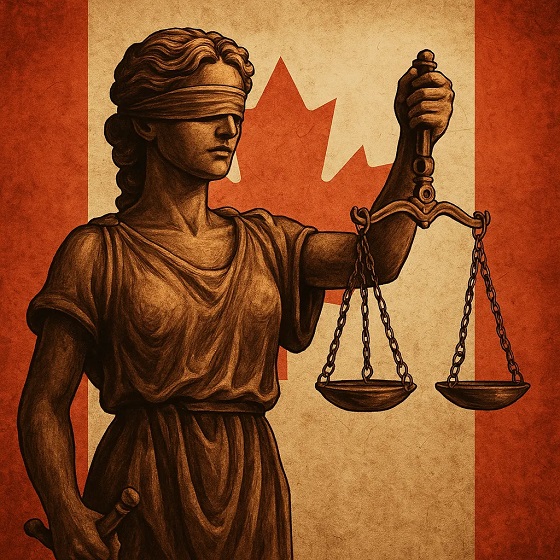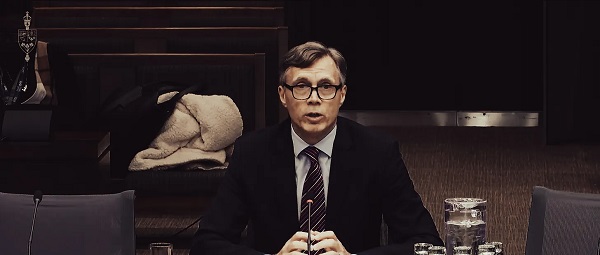Censorship Industrial Complex
Winnipeg Universities Flunk The Free Speech Test

From the Frontier Centre for Public Policy
By Tom Flanagan
Frances Widdowson faced mob hostility for saying unmarked graves have yet to be proven
Dr. Frances Widdowson’s visit to Winnipeg on Sept. 25 and 26 should have been an opportunity for debate. Instead, the city’s universities endorsed a statement that undermines academic freedom.
Widdowson, a political scientist known for questioning official narratives about residential schools, came to meet students who wanted to ask about claims of “unmarked graves.” Those claims, which became national headlines in 2021 after ground-penetrating radar surveys at former school sites, remain unproven because no physical evidence of burials has been found.
For many Canadians, the claims of “unmarked graves” were a shocking revelation, given how widely the story was reported as a settled fact.
That context alone should have been enough to spark discussion. Instead, the University of Manitoba and the University of Winnipeg joined the Assembly of Manitoba Chiefs in issuing a statement that should embarrass both schools. At institutions dedicated to study and inquiry, the instinct should be to ask more questions, not to shut them down.
At first, the statement sounded reasonable. It said the universities did not “condone violence or threats to anyone’s safety.” But that did not stop Widdowson from being roughed up by a mob at the University of Winnipeg. It would be refreshing if the universities condemned mob violence with the same urgency they condemned a professor answering questions. Their silence sends its own message about which kind of behaviour is tolerated on campus.
The bigger problem is the statement’s claim that there is a single “truth” about residential schools, known to “survivors,” and that questioning it amounts to “denial.” In reality, 143 residential schools operated with federal support for more than a century. What happened varied widely from place to place and decade to decade.
That is a subject for historical research, grounded in evidence and debate, not pronouncements about capital-T “Truth” issued by communications offices. Canadians deserve to know that history is still being studied, not declared untouchable.
Worse still was the statement’s promise to “press the Government of Canada to enact legislation that makes residential school denialism a crime.” The Assembly of Manitoba Chiefs is free to say what it wants. But universities lending their names to a demand that historical inquiry be criminalized is beyond misguided; it is dangerous.
Criminalizing “denialism” would mean that even challenging details of the residential school record could be punishable by law. Canadians should think carefully before accepting laws that turn historical debate into a criminal offence.
The University of Chicago’s widely praised statement on academic freedom puts it well: “the University’s fundamental commitment is to the principle that debate or deliberation may not be suppressed because the ideas put forth are thought by some or even by most members of the University community to be offensive, unwise, immoral, or wrong-headed. It is for the individual members of the University community, not for the University as an institution, to make those judgments for themselves.” That principle should also guide Canadian universities. Academic freedom is not a luxury; it is the foundation of higher education.
Worst of all, these positions were not even issued in the names of presidents or academic leaders. They were issued under “media relations.” Imagine being a serious scholar or scientist at one of these universities and discovering that the media office had taken a political stance on your behalf.
I know how I would feel: undermined as a professional and silenced as a citizen.
Tom Flanagan is a professor emeritus of political science at the University of Calgary and a Fellow of the Royal Society of Canada. He is a senior fellow at the Frontier Centre for Public Policy and co-editor of the best-selling book Grave Error: How the Media Misled Us (and the Truth about Residential Schools).
Business
Elon Musk announces ‘Grokipedia’ project after Tucker Carlson highlights Wikipedia bias

From LifeSiteNews
By Joseph Quinn
Wikipedia co-founder Larry Sanger explained how Wikipedia systematically blacklists and “deprecates” conservative sources. Wikipedia remains one of the most heavily used information sources online and is integrated with Google search results.
Elon Musk has announced plans to build “Grokipedia,” a new open-source online encyclopedia under his artificial intelligence company xAI.
“Will be a massive improvement over Wikipedia,” Musk wrote on X. “Frankly, it is a necessary step towards the xAI goal of understanding the Universe.”
We are building Grokipedia @xAI.
Will be a massive improvement over Wikipedia.
Frankly, it is a necessary step towards the xAI goal of understanding the Universe. https://t.co/xvSeWkpALy
— Elon Musk (@elonmusk) September 30, 2025
The announcement came days after Tucker Carlson’s interview with Larry Sanger, a co-founder of Wikipedia and a vocal critic of the organization since his departure in 2002.
Larry Sanger built Wikipedia as an unbiased repository of the world’s knowledge, and then stood helplessly by as activists and intel agencies turned it into the most comprehensive propaganda op in human history. There’s nothing more corrupt.
(0:00) The Origins of Wikipedia… pic.twitter.com/J59oEejCG2
— Tucker Carlson (@TuckerCarlson) September 29, 2025
Sanger explained how Wikipedia systematically blacklists and “deprecates” conservative sources. Seeing LifeSiteNews on the list, Carlson said that the platform has become “a weapon of ideological, theological war.”
Musk echoed Sanger’s criticisms, affirming Judicial Watch president Tom Fitton’s claim that “Wikipedia is a smear machine for the Left.”
💯
— Elon Musk (@elonmusk) September 30, 2025
Musk later amplified memes promoting Grokipedia, calling it “an open source knowledge repository that is vastly better than Wikipedia.”
Join @xAI and help build Grokipedia, an open source knowledge repository that is vastly better than Wikipedia!
This will be available to the public with no limits on use. https://t.co/3CnfrvNIpI
— Elon Musk (@elonmusk) September 30, 2025
He also affirmed Sanger’s “Nine Theses,” which call for dismantling Wikipedia’s centralized editorial control.
Some good suggestions from the co-founder of Wikipedia https://t.co/bgwBmi6uXN
— Elon Musk (@elonmusk) September 30, 2025
Musk has not released technical details of the Grokipedia project but said that Grok AI will be independent of Wikipedia “by the end of the year.”
Images of a potential logo were also shared on his X account.
Wikipedia should have just taken that $1 billion offer from Elon Musk, it’s too late, the rival is coming: Grokipedia! pic.twitter.com/cLBKfPRgyO
— SMX 🇺🇸 (@iam_smx) September 30, 2025
Wikipedia remains one of the most heavily used information sources online and is integrated with Google search results. Critics argue that its governance model allows biased editors – described as “ideologically-driven thought police” – to shape content and suppress dissenting viewpoints, particularly on political, cultural, and religious topics.
A similar initiative called “Infogalactic” was launched in 2016. A “fork” of Wikipedia, it was designed to decentralize control and allow multiple perspectives. While Infogalactic never reached Wikipedia’s scale, it established a model for alternative knowledge repositories.
Attracting a critical mass of editors and establishing credibility remain significant challenges facing such alternatives. Musk’s involvement signals a higher-profile challenge to Wikipedia’s dominance, combining xAI’s technological resources with his public platform on X.
Musk has not provided a clear timeline, but the announcement positions xAI to mount a direct challenge to Wikipedia’s dominance of the information ecosystem.
Censorship Industrial Complex
Bill C-9 and the Tyranny of Feeling Heading Straight for Canadians

When governments turn offence into law, liberty collapses into sentiment. Canada risks importing Britain’s mistakes, just as J.D. Vance warned Europe in Munich.
On February 14th of this year (coincidentally, the anniversary of Justin Trudeau’s invocation of the Emergencies Act against protestors), in the grand hall of the Munich Security Conference, J.D. Vance startled Europe’s elites by saying what few of them expected to hear. The greatest threat to their democracy, he argued, was not Moscow. It was their own governments that turned on their citizens in the name of fighting misinformation and hate. Vance catalogued the evidence with blunt precision: British citizens arrested for jokes on Twitter, preachers detained for quoting scripture, elections tampered with under the smiling banner of progress. The room bristled with discomfort, yet the truth could not be mistaken. Western democracies are abandoning the free expression that once sustained them, and they are doing so under the new morality of emotion.
Canada now finds itself in that same trajectory with Bill C-9, Ottawa’s latest legislative foray into the culture war. It is being sold as the Combatting Hate Act, a law meant to protect vulnerable minorities and to defend sacred spaces from intimidation.
Peel back the packaging and its essence appears at once: the codification of subjective feelings into the Criminal Code. What the United Kingdom has lived through for the last decade, police investigating citizens for limericks and memes, Canada now risks importing as law.
The mechanics of the bill are deceptively technical. Until now, prosecutions for so-called hate propaganda required the Attorney General’s approval. That safeguard was in place to ensure that prosecutions were filtered through political accountability and not simply triggered by an activist’s complaint. Bill C-9 abolishes that filter, placing the discretion squarely with police officers who will be pressed to act on every allegation. Remember how the cops acted during COVID.
The bill then goes further by creating new offences for the “willful promotion of hatred” through words, symbols, or representations, a category so broad it could ensnare a placard at a school board protest or a verse from scripture. It also introduces a stand-alone “hate crime” category in which the motive itself becomes the crime. In short, it criminalizes thought. Finally, it expands criminal liability to anyone who obstructs or intimidates access to religious or cultural sites. In the last five years, the law in Canada has not been exceptionally diligent in prosecuting church arson and gunfire attacks on synagogues, despite existing laws. The C-9 wording is so loose that a prayer vigil outside an abortion clinic or a parents’ protest at a school could easily fall within its net.
Why does this matter? Because it moves the law away from objective acts of violence or harassment and into the murky realm of motive. It is one thing to punish a man for assault; it is quite another to punish him more severely because a cop or judge claims to know the intention behind his act. It is one thing to outlaw threats; it is quite another to treat blunt disagreement as hate. The result is predictable. Citizens will censor themselves on questions of immigration, gender ideology, or religious teaching because the cost of speaking plainly will be too high. The process itself, arrest, seizure of devices, and the humiliating headline will become the punishment.
The British experience shows us the road ahead. Harry Miller, a former policeman, was investigated in 2019 for retweeting a limerick that mocked gender identity theory. Police recorded a “non-crime hate incident” in his file and told him they needed to “check his thinking.” Paul Chambers, in 2010, made a sarcastic joke on Twitter about blowing up an airport after his flight was cancelled. He was arrested, fined, and lost his job, but was acquitted only years later, by which time the damage had already been done.
Haultain Research is a reader-supported publication.
To receive new posts and support our work, consider becoming a free or paid subscriber.
In 2020, Kate Scottow was detained and held for questioning because she “misgendered” someone online; her children were left alone as police seized her devices. British street preachers have been hauled away for reading biblical verses aloud. Even football fans have been arrested for chants and tweets. In a single year, British police recorded 120,000 “non-crime hate incidents” and arrested roughly 3,000 people for “grossly offensive” posts.
The phrase in Britain is “grossly offensive.” The phrase in Canada will be “wilfully promoting hatred.” Both are so elastic that they depend solely on the complainant’s feelings. In effect, the state outsources its standards to the most sensitive or malevolent among us, empowering activists to wield the criminal law as a bludgeon against their opponents.
Here, J.D. Vance’s speech in Munich is especially relevant. He noted that Western elites have become adept at justifying repression under the guise of safety. They claim to fight disinformation, but in practice, they suppress opposition. They claim to defend minorities, but in practice, they silence majorities. They claim to defend democracy, yet in Europe, they annul elections. In Canada, there is now a push to criminalize dissent.
What emerges is a selective enforcement regime in which elites are exempt and ordinary citizens are vulnerable. A tweet from a farmer in Red Deer will be treated as criminal, while a prime minister declaring that parents who question gender ideology are extremists goes unpunished.
Beneath all of this lies a deeper cultural drift. Bill C-9 is not merely bad law. It is bad philosophy. Modern governments have learned to glorify emotivism, to elevate feelings over objective reason because emotions win elections. The Canadian philosopher Charles Taylor clearly saw this trend in his Massey lectures, later published as The Malaise of Modernity. Allan Bloom did the same in his Closing of the American Mind.
Taylor warned that when cultures replace shared standards of truth with the subjectivity of self-expression, they hollow out the ground beneath their toes. Bill C-9 is the juridical form of that malaise, the victory of the subjective over the rational, the enthronement of offence as a legal standard. When reason is abandoned, politics slides into tyranny, for then only force remains to adjudicate among clashing feelings.
The antidote against those who want to curtail your speech is not silence but more speech. Resistance begins with refusing to be cowed. State the obvious, again and again: men are not women, women are not men, for example. The categories of nature are not dissolved by individual whim.
Hannah Arendt, who more than anyone decoded the mechanisms of totalitarianism in the twentieth century, insisted that the greatest threat to power was not always open rebellion but ridicule. Mock the absurdities of their ideology, not in cruelty but in charity. Expose them as unserious, as unscientific, as laughable. Power that relies on emotion and feeling cannot withstand laughter. The rule of sentiment is brittle, which is why it demands coercion to sustain itself.
John Stuart Mill remains the strongest guide here. In On Liberty, he reminded us that the suppression of any opinion, however offensive, robs society of the chance to test truth. If an opinion is wrong, it sharpens truth by contest; if it is right, then silencing it robs us of truth itself. Mill’s harm principle is stark in its relevance. The state may act only to prevent real harm, not to shield citizens from chafed feelings. Hurt feelings are the price of liberty, and liberty is the most valuable condition for reason to flourish. When governments claim the right to protect citizens from offence, they do not protect minorities; they infantilize everyone.
So who loses under Bill C-9? Faith communities, whose doctrine can be branded hateful. Parents who risk charges for questioning curricula. Feminists who fight to preserve sex-based protections. Protesters, from truckers to farmers to pro-life advocates. And ordinary Canadians online, whose memes and jokes can be turned into evidence of “hate propaganda.”
Bill C-9 is not a shield for the vulnerable. It is a sword for the boundlessly powerful. It is the law’s surrender to the tyranny of feeling, the enthronement of emotion as authority. Vance’s warning in Munich was not only for Europe. It was for Canadians too. If disagreement is hate, liberty itself is outlawed. Canada now faces a choice: do we defend and protect our freedom, or do we accept a government that punishes thought?
The antidote remains the same: resist, speak, mock, and laugh. Proclaim the truth plainly but respectfully. Refuse to bow to the cult of feeling. The rule of reason is fragile but essential. It must be preserved. Without it, Canada will follow Britain into the swamp of self-censorship and state-enforced sentiment. With it, liberty might yet endure.
I wrote this post based on a few notes that I made for this conversation in Leaders on the Frontier.
Please subscribe to Haultain Research.
For the full experience, and to help us bring you more quality research and commentary, please upgrade your subscription.
-

 National17 hours ago
National17 hours agoCanada’s birth rate plummets to an all-time low
-

 Agriculture1 day ago
Agriculture1 day agoCarney’s nation-building plan forgets food
-

 Fraser Institute1 day ago
Fraser Institute1 day agoAboriginal rights now more constitutionally powerful than any Charter right
-

 Business19 hours ago
Business19 hours agoElon Musk announces ‘Grokipedia’ project after Tucker Carlson highlights Wikipedia bias
-

 Alberta1 day ago
Alberta1 day agoAlberta puts pressure on the federal government’s euthanasia regime
-

 Crime16 hours ago
Crime16 hours agoPierre Poilievre says Christians may be ‘number one’ target of hate violence in Canada
-

 Red Deer18 hours ago
Red Deer18 hours agoThe City or Red Deer Financial Troubles: The Role of Good Governance, Effective Policies and Key Performance Metrics.
-

 Business2 days ago
Business2 days agoDemocracy Watch Drops a Bomb on Parliament Hill






